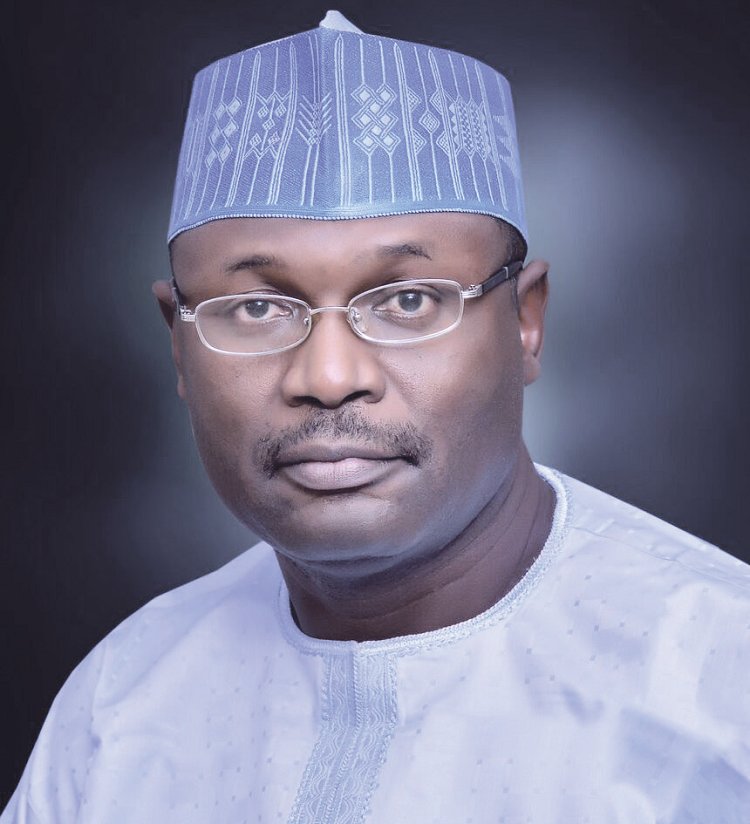North-West – 22,255,562
South-West – 17,958,966
North Central – 15,363,731
South-South – 14,440,714
North-Central – 15,363,731
North-East – 12,542,429
South-East – 10,907,606
With 7,060,195 voters, Lagos State tops the voters registration chart released by the Independent National Electoral Commission (INEC) yesterday. Kano with 5,921,370 and Kaduna, 4,335,208 came second and third respectively.
The Independent National Electoral Commission on Wednesday released the final list of voters that will cast their ballots in the elections, with the North-West and South-West having the lion’s share of the 93.4 million eligible voters.
Presenting the voter register at a meeting with leaders of political parties at the INEC headquarters, Abuja, the commission’s Chairman, Mahmood Yakubu, said the number of registered youths was 37,060,399.
In November 2022, the commission published the preliminary register of voters across the 774 local government areas on its website to enable eligible voters to confirm their details, as well as for Nigerians to report ineligible persons captured in the register.
Yakubu said the commission received more than 53,000 objections to the register, after which the ineligible voters were removed.
He stated, “After the cleaning-up of the data from the last continuous voter registration exercise, 9,518,188 new voters were added to the previous register, resulting in the preliminary register of 93,522,272, which was presented to Nigerians for claims and objections as required by law.
“At the end of the period for claims and objections by citizens, the commission received 53,264 objections from Nigerians to the prevalence of ineligible persons on the register by age, citizenship, or death. These names have been verified and removed from the register.”
The INEC chairman also assured Nigerians that the commission was not contemplating postponing the general elections.
Yakubu also stated that the timetable for the election had not changed, assuring that the elections would hold as scheduled.
He stated, “Following the display of the voter register nationwide and the conclusion of claims and objections by citizens, a new national register of voters has been compiled.
“In short, at no time in the recent history of the commission has so much of the forward planning and implementation been accomplished 44 days ahead of a general election.
“Therefore, the commission is not contemplating any adjustment to the election timetable, let alone the postponement of the general elections.
“For the avoidance of doubt, the presidential and National Assembly elections will hold on Saturday 25th February 2023 while governorship and state assembly elections will hold two weeks later on Saturday, 11th March, 2023.
“The repeated assurance by the security agencies for the adequate protection of our personnel, materials and processes also reinforces our determination to proceed. The 2023 general elections will hold as scheduled. Any report to the contrary is not the official position of the commission.
“As a further affirmation of the commission’s readiness to conduct the 2023 general elections as scheduled, the final register of voters has been compiled. You would recall that for the 2019 general elections, Nigeria had a voter population of 84,004,084.”
According to the figures released by the commission, the North-West geopolitical zone has the highest number of registered voters with 22,255,562.
As of the 2019 elections, the North-West had 20.15m voters. However, the latest report released by INEC showed that over 2m new voters registered during the recently concluded continuous voter registration.
The South-West, which in 2019 had 16,292,212 registered voters, now has 17,958,966, having added 1,666,754 new registered voters.
The North-Central, which had 13,366,070 registered voters in 2019, now has 15,363,731.
The electoral body figures also show that the South-South has 14,440,714 registered voters. The region boasted 12,841,279 registered voters in 2019.
On the other hand, the North-East currently has 12,542,429 up from 11,289, 293 voters it had in 2019 while the South-East has 10,907,606 up from 10,057,130 registered voters it had in 2019.
By gender, men surprisingly dominate the voter register at 49,054,162 (52.5 per cent) while the figure of female voters stands at 44,414,846 (47.5 per cent).
Lagos, Kano lead
Further breakdown by states showed that Lagos has the highest number of registered voters with 7,060,195, followed by Kano with 5,921,370 and Kaduna, 4,335,208.
Others include Abia, 2,120,808; Adamawa, 2,196,566; Akwa-Ibom, 2,357,418; Anambra, 2,656,437; Bauchi, 2,749,268; Bayelsa, 1,056,862; Benue, 2,777,727; Borno, 2,513,281; Cross River 1,766,466; Delta, 3,221,697; Ebonyi, 1,597,646; Edo, 2,501,081; Ekiti, 987,647; Enugu, 2,112,793; FCT, 1,570,307; Gombe, 1,575,794 and Imo, 2,419,922.
Other states are Jigawa, 2,351,298; Katsina, 3,516,719; Kebbi, 2,032,041; Kogi, 1,932,654; Kwara 1,695,927; Nasarawa, 1,899,244; Niger, 2,698,344; Ogun, 2,688,305; Ondo, 1,991,344; Osun, 1,954,800; Oyo, 3,276,675; Plateau, 2,789,528; Rivers, 3,537,190; Sokoto, 2,172,056; Taraba, 2,022,374; Yobe,1,485,146; and Zamfara, 1,926,870.
For the age group, registered youths (18-34) were 37,060,399; Middle aged (35-49) 33,413,591; Elderly (50-69), 17,700,270; old (70+) 5,294,748.




